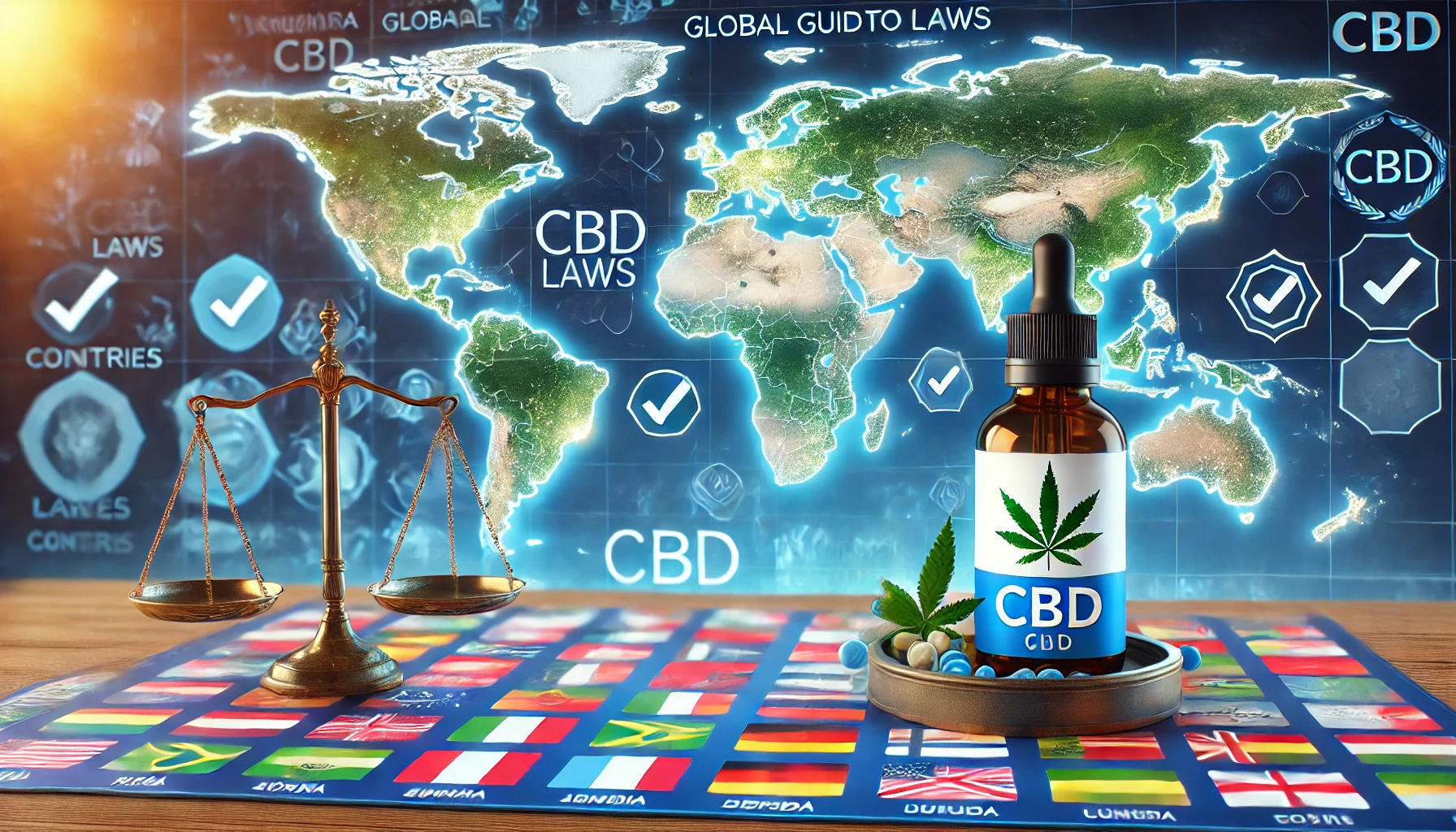The popularity of CBD (cannabidiol) has exploded worldwide due to its potential health benefits, but the legal status of CBD varies from country to country. While some nations fully embrace CBD products, others impose strict regulations or outright bans. In this comprehensive guide, we’ll explore the CBD laws around the globe to help you stay informed about the legality of CBD in your country.
1. United States
In the U.S., the legal status of CBD largely depends on whether it is derived from hemp or marijuana.
- Hemp-derived CBD: Federally legal as long as it contains less than 0.3% THC, thanks to the 2018 Farm Bill. However, each state has its own regulations, and some impose additional restrictions on CBD sales and usage.
- Marijuana-derived CBD: Only legal in states where marijuana is fully legalized for recreational or medicinal use.
Key Point: Always check your state laws for any specific regulations regarding CBD products.
2. Canada
CBD is fully legal in Canada, but it is regulated under the same laws as cannabis. The country legalized both recreational and medicinal use of cannabis in 2018, meaning CBD products are available, but only through government-regulated channels.
- CBD products must be purchased through licensed dispensaries or online from government-approved retailers.
Key Point: You must be of legal age to purchase CBD in Canada, and unregulated sales are illegal.
3. United Kingdom
CBD is legal in the UK as long as it is derived from industrial hemp and contains no more than 1 mg of THC per product. CBD must also be sold as a supplement rather than a medicine, unless it has been prescribed by a healthcare provider.
- Novel Food Regulations: As of 2021, CBD products must be registered with the Food Standards Agency (FSA) and meet certain safety standards.
Key Point: Consumers should only purchase CBD from reputable companies that comply with the FSA regulations.
4. European Union (EU)
The legality of CBD across the EU varies by country, though there are some common regulations:
- EU-wide rules: CBD products must be derived from industrial hemp containing less than 0.2% THC. In many countries, CBD is considered a “novel food,” and products must meet specific regulations.
However, some countries, like Slovakia, still prohibit the use of CBD, while others like Germany and Austria allow for more liberal use.
Key Point: While CBD is generally tolerated in most EU countries, it’s important to check local laws for any country-specific regulations or restrictions.
5. Australia
In Australia, CBD is legal but highly regulated. CBD products are classified as Schedule 4 (prescription-only) substances. As of 2021, low-dose CBD products can be sold over-the-counter, but they must be approved by the Therapeutic Goods Administration (TGA), which is a lengthy process.
- Medicinal use: Requires a doctor’s prescription and can be accessed through the Special Access Scheme.
Key Point: Although CBD is legal in Australia, the market is still developing, and access may be limited.
6. New Zealand
CBD is legal in New Zealand, but only with a doctor’s prescription. Products must contain no more than 2% THC and can only be obtained through licensed suppliers.
- Medicinal use only: While CBD is technically available, it is only accessible for patients with a prescription.
Key Point: CBD is not available for recreational use, and all products must be approved by the Ministry of Health.
7. South America
The legality of CBD varies significantly across South America:
- Brazil: CBD is legal for medicinal use with a prescription and approval from the health authority, ANVISA.
- Argentina: Recently legalized the sale of CBD oil for medicinal purposes, but recreational use remains illegal.
- Uruguay: Fully legal for both medicinal and recreational use, as Uruguay was the first country in the world to fully legalize cannabis.
Key Point: While some countries in South America allow CBD for medicinal purposes, recreational use remains illegal in most places.
8. Asia
Asia has some of the strictest CBD laws in the world, but there are exceptions:
- Japan: CBD is legal, provided it contains no THC. CBD products are widely available in shops and online.
- Thailand: Recently legalized CBD for medicinal purposes, with strict regulations on its use and production.
- China: While cannabis is illegal, CBD skincare products are legal and growing in popularity. However, CBD as a consumable product remains illegal.
Key Point: The legal landscape in Asia is complicated, and travelers should exercise caution when carrying CBD products in the region.
9. Africa
The legal status of CBD in Africa varies widely, and in most countries, CBD is not fully legalized:
- South Africa: CBD is legal for personal use, but products must contain less than 20 mg of CBD per daily dose and no more than 0.001% THC.
- Zimbabwe: Has legalized CBD for medicinal use under strict conditions.
Key Point: While CBD is gaining traction in some African countries, the continent’s CBD regulations are still developing.
10. Middle East
Most Middle Eastern countries have very strict laws regarding cannabis and its derivatives, including CBD:
- United Arab Emirates (UAE): CBD is strictly prohibited and possession can lead to severe legal consequences.
- Israel: Has been a pioneer in cannabis research and allows CBD for medicinal use, but it remains illegal for recreational purposes.
Key Point: The Middle East has some of the harshest penalties for CBD use and possession. Travelers should avoid carrying CBD in this region.
Conclusion: Understanding Global CBD Laws
The legal status of CBD varies greatly around the world. While many countries are embracing CBD for medicinal or even recreational use, others still impose strict regulations or bans. If you’re using or traveling with CBD, it’s important to familiarize yourself with local laws to avoid legal complications.

Leave a Reply